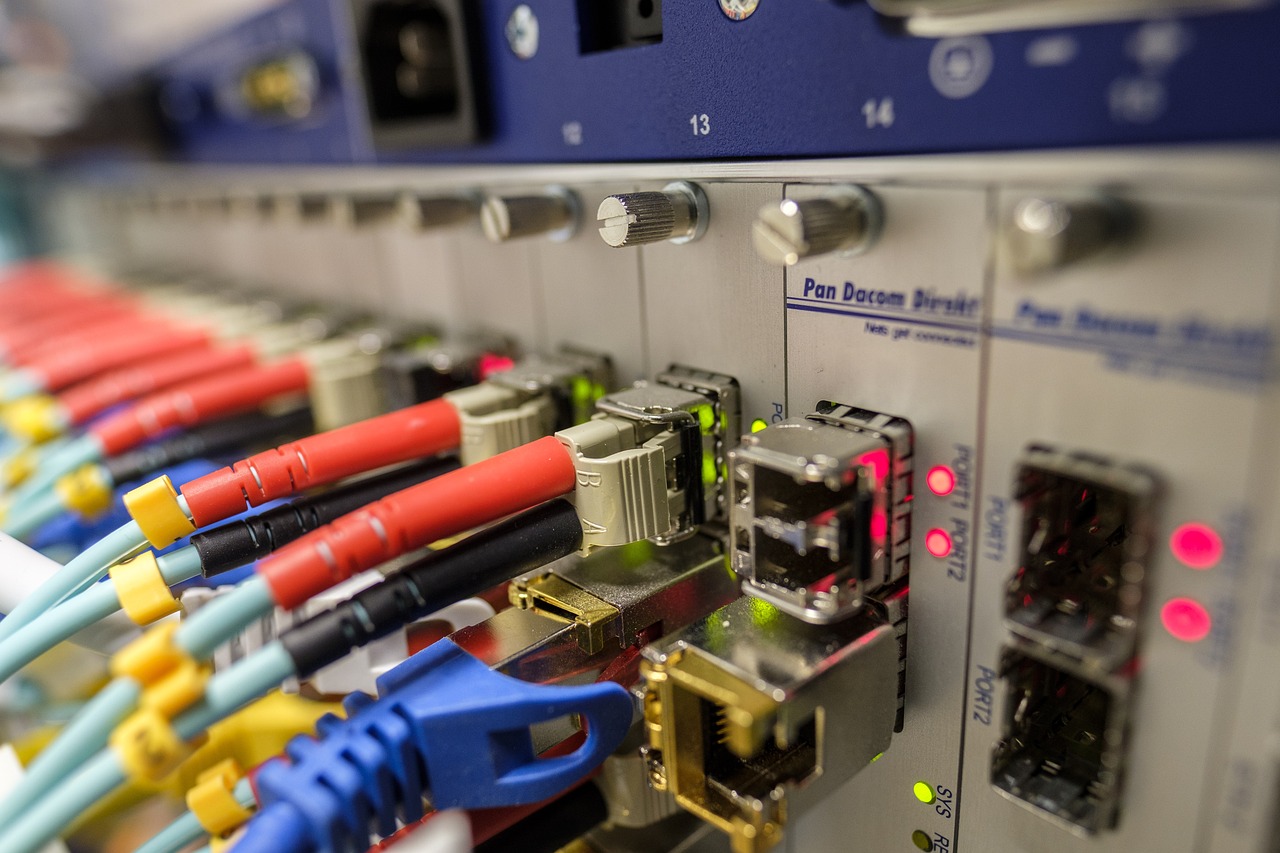Top 3 Fiber Adapter Types Compared

Fiber adapters play a crucial role in modern communication networks. They facilitate seamless connections between optical fibers, ensuring efficient data transmission. As the demand for high-speed internet and cloud computing grows, the importance of fiber adapters in fiber optic networks becomes more pronounced. Among the various types available, the SC, LC, and ST fiber adapters stand out due to their unique features and applications. These adapters cater to different needs, from telecommunications to industrial settings, making them indispensable in today's digital landscape.
SC Fiber Adapter

The SC Fiber Adapter stands as a prominent choice in the realm of fiber optic connections. Its design and functionality cater to a wide range of applications, making it a versatile component in modern communication networks.
Features
Design and Build
The SC Fiber Adapter boasts a robust square shape, which ensures stability and durability. Its design facilitates quick and efficient connections, a crucial aspect for temporary setups or emergency repairs. The adapter's construction minimizes insertion loss, allowing light to pass through with minimal disruption. This feature is essential for maintaining high-quality signal transmission.
Performance Characteristics
Performance-wise, the SC Fiber Adapter excels in providing low insertion loss and high-quality polish. These characteristics ensure that the light source is transported at its maximum potential, reducing signal degradation. The adapter's ability to maintain consistent performance makes it a reliable choice for various fiber optic applications.
Advantages
Ease of Use
One of the standout advantages of the SC Fiber Adapter is its ease of use. The adapter's design allows for straightforward installation and removal, making it ideal for situations requiring quick connections. Users can easily interchange and reproduce connections without compromising performance.
Compatibility
The SC Fiber Adapter offers broad compatibility with industry-standard SC connectors. This feature ensures seamless integration into existing fiber optic systems, enhancing its utility across different platforms. Its compatibility extends to various equipment, making it a preferred choice for many network setups.
Typical Applications
Telecommunications
In telecommunications, the SC Fiber Adapter plays a pivotal role. Its ability to provide stable and efficient connections makes it indispensable for maintaining high-speed data transmission. The adapter's design supports the rigorous demands of telecommunication networks, ensuring reliable performance.
Data Centers
Data centers benefit significantly from the SC Fiber Adapter's features. Its low insertion loss and high-quality polish contribute to maintaining optimal data flow, crucial for data-intensive environments. The adapter's compatibility and ease of use further enhance its suitability for data center applications, where efficiency and reliability are paramount.
LC Fiber Adapter

The LC Fiber Adapter represents a significant advancement in fiber optic technology. Its compact design and high-density capabilities make it a preferred choice for modern network infrastructures.
Features
Design and Build
The LC Fiber Adapter sets the standard for small optical fiber cable interconnects. Its design includes a small form factor, which is ideal for high-density environments. This adapter comes in various types, including single mode and multimode, as well as simplex, duplex, and quad versions. The versatility in design allows it to accommodate different network requirements, ensuring seamless connectivity between fiber optic cables or connectors.
Performance Characteristics
Performance-wise, the LC Fiber Adapter excels in maintaining low insertion loss and high return loss. These characteristics ensure efficient data transmission with minimal signal degradation. The adapter's ability to support both single mode and multimode fibers enhances its adaptability across various applications. This performance reliability makes it a staple in high-demand environments.
Advantages
Compact Size
One of the standout features of the LC Fiber Adapter is its compact size. This small form factor allows for efficient space utilization, making it suitable for environments where space is at a premium. The adapter's design facilitates easy integration into existing systems without requiring extensive modifications.
High Density
The LC Fiber Adapter supports high-density cabling solutions, which is crucial for modern data centers and enterprise networks. Its ability to accommodate numerous connections within a limited space enhances network scalability. This high-density capability ensures that network infrastructures can expand without compromising performance or reliability.
Typical Applications
Enterprise Networks
In enterprise networks, the LC Fiber Adapter plays a vital role. Its compact size and high-density capabilities make it ideal for large-scale deployments. The adapter's performance characteristics ensure reliable data transmission, which is essential for maintaining efficient network operations in business environments.
High-Density Environments
High-density environments, such as data centers, benefit significantly from the LC Fiber Adapter. Its ability to support numerous connections within a confined space optimizes network infrastructure. The adapter's design and performance characteristics ensure that data centers can handle large volumes of data traffic efficiently, meeting the demands of modern digital applications.
ST Fiber Adapter
The ST Fiber Adapter holds a significant place in fiber optic technology. Its unique design and robust performance make it a reliable choice for various demanding environments.
Features
Design and Build
The ST Fiber Adapter features a round shape with a bayonet-style coupling mechanism. This design ensures quick and secure connections, which is essential for applications requiring frequent connection and disconnection. The adapter's construction emphasizes durability, allowing it to withstand harsh conditions without compromising performance. Its design facilitates easy interchangeability and reproducibility, making it a versatile component in fiber optic networks.
Performance Characteristics
Performance-wise, the ST Fiber Adapter excels in providing low insertion loss and high-quality polish. These characteristics ensure that light sources are transported at their maximum potential, minimizing signal degradation. The adapter's ability to maintain consistent performance under various conditions makes it a preferred choice for applications where reliability is crucial.
Advantages
Durability
One of the standout advantages of the ST Fiber Adapter is its durability. The robust design allows it to endure challenging environments, making it suitable for industrial and military applications. Its bayonet-style coupling mechanism adds to its resilience, ensuring stable connections even in high-vibration settings.
Cost-Effectiveness
The ST Fiber Adapter offers cost-effectiveness without sacrificing quality. Its design and performance characteristics provide long-term value, reducing the need for frequent replacements. This cost efficiency makes it an attractive option for organizations looking to optimize their network infrastructure without incurring excessive expenses.
Typical Applications
Industrial Settings
In industrial settings, the ST Fiber Adapter proves invaluable. Its durability and performance reliability make it ideal for environments where equipment faces constant wear and tear. The adapter's ability to maintain stable connections ensures uninterrupted data transmission, which is critical for industrial operations.
Military Applications
Military applications benefit significantly from the ST Fiber Adapter's robust design. Its ability to withstand high-vibration environments and maintain secure connections makes it suitable for military communication systems. The adapter's performance characteristics ensure that data transmission remains reliable, even under the most demanding conditions.
Comparison Criteria
When evaluating fiber adapters, several criteria come into play. These criteria help determine the most suitable adapter for specific applications.
Performance
Speed and Efficiency
The speed and efficiency of a fiber adapter significantly impact network performance. SC adapters excel in high-speed environments due to their robust design, which minimizes signal loss. LC adapters, with their compact size, offer excellent performance in high-density setups, ensuring efficient data transmission. ST adapters, known for their bayonet locking mechanism, provide reliable connections in environments requiring frequent changes.
Signal Quality
Signal quality is crucial for maintaining data integrity. SC adapters deliver high-quality signals with minimal degradation, making them ideal for telecommunications. LC adapters maintain superior signal quality, especially in enterprise networks where data precision is vital. ST adapters, with their durable construction, ensure consistent signal quality even in harsh conditions.
Ease of Use
Installation Process
The installation process varies among adapters. SC adapters offer straightforward installation, suitable for quick setups. LC adapters, with their small form factor, integrate easily into existing systems, reducing installation time. ST adapters, featuring a bayonet-style coupling, allow for quick and secure connections, beneficial in dynamic environments.
Maintenance
Maintenance is a key consideration for long-term use. SC adapters require minimal maintenance due to their durable design. LC adapters, with their high-density capability, demand careful handling to prevent damage. ST adapters, known for their robustness, withstand frequent use, reducing maintenance needs.
Compatibility
Network Integration
Network integration determines how well an adapter fits into existing systems. SC adapters, with broad compatibility, integrate seamlessly into various networks. LC adapters, designed for high-density environments, support complex network architectures. ST adapters, with their versatile design, adapt to different network configurations, enhancing integration flexibility.
Device Support
Device support is essential for ensuring connectivity across platforms. SC adapters support a wide range of devices, making them versatile. LC adapters, with their compact design, are compatible with modern network equipment. ST adapters, known for their durability, support devices in industrial and military applications, ensuring reliable connections.
Cost
Initial Investment
When considering the initial investment in fiber adapters, each type presents distinct financial implications. The SC adapter, known for its robust square shape and high performance, often requires a moderate initial outlay. Its design, suitable for power-meter hookups, ensures that users receive value for their expenditure. The LC adapter, with its compact size and excellent performance, typically demands a higher initial investment. This cost reflects its advanced technology and suitability for high-density environments. On the other hand, the ST adapter, featuring a round shape and bayonet locking mechanism, generally offers a more budget-friendly option. Its affordability makes it an attractive choice for organizations seeking reliable performance without significant upfront costs.
Long-term Value
Evaluating the long-term value of fiber adapters involves assessing their durability, maintenance needs, and overall performance over time. The SC adapter provides substantial long-term value due to its high-quality build and compatibility with various systems. Its ability to maintain performance with minimal maintenance contributes to its cost-effectiveness over time. The LC adapter, while initially more expensive, offers exceptional long-term value through its high-density capabilities and efficient space utilization. Its performance reliability ensures that network infrastructures can expand without frequent replacements. Meanwhile, the ST adapter stands out for its durability and cost-effectiveness. Its robust design allows it to endure challenging environments, reducing the need for replacements and ensuring consistent performance. This durability translates into significant savings over the lifespan of the adapter, making it a wise investment for industrial and military applications.
In summary, the fiber adapter plays a pivotal role in ensuring efficient data transmission across various network environments. The SC, LC, and ST adapters each offer unique features tailored to specific applications. For telecommunications and data centers, the SC adapter provides robust performance and ease of use. The LC adapter excels in high-density environments, offering compact size and high performance. Meanwhile, the ST adapter stands out in industrial and military settings due to its durability and cost-effectiveness. When selecting the right fiber adapter, consider the specific needs of your network to ensure optimal performance and reliability.


